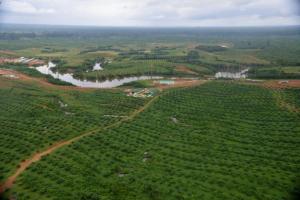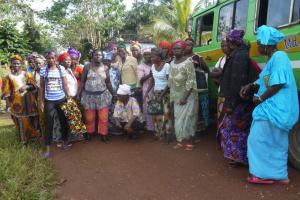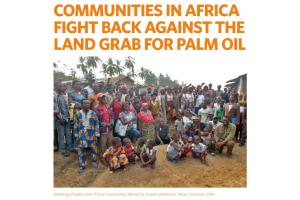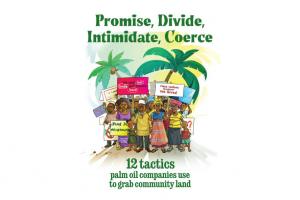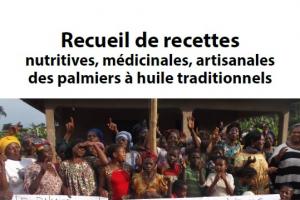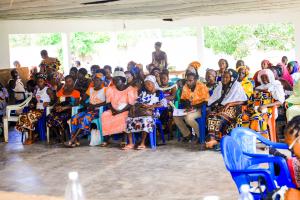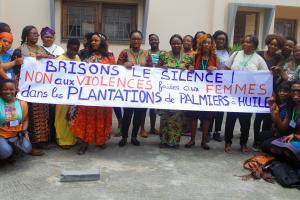Palm Oil
The oil palm tree is native to West Africa. It is an important tree for forest-dependent communities, their cultures and their economies. However, large-scale oil palm monocultures for industrial production (oil and agrofuels) have been driving deforestation and land grabbing in Southeast Asia. More recently, oil palm monocultures are also driving destruction in Africa and Latin America.
Patriarchal oppression is inseparable from the industrial plantation model, and it is at the base of how companies generate profits. Companies target women, including due to their fundamental role in community life.
Why haven't Africa's post-colonial governments dismantled the colonial plantation model of exploitation and extraction, returned the lands to their people and emboldened a resurgence of Africa's diverse, local food and farming systems?
A new report on the state of industrial oil palm plantations in Africa shows how communities are turning the tide on a massive land grab in the region.
Only available in French.
Certification schemes for tree plantations initially generated many expectations, promising a true transformation. Yet after all these years, we can definitely conclude that what the RSPO and FSC also have in common is that they will not meet those expectations.
Dekel Oil’s false promises lure villagers into dangerous oil palm growing contracts in Cote d’Ivoire
Land owners in Cote d'Ivoire are trapped in contracts with Dekel Oil, a company that made false promises arguing villagers would become rich by signing contracts to let oil palm monocultures on their land.
We said it in Mundemba, Cameroon, we reiterated it in Port Loko, Sierra Leone, we re-affirm this in Abidjan, Cote d’Ivoire: the abuse against women in and around industrial oil palm plantations must STOP!

